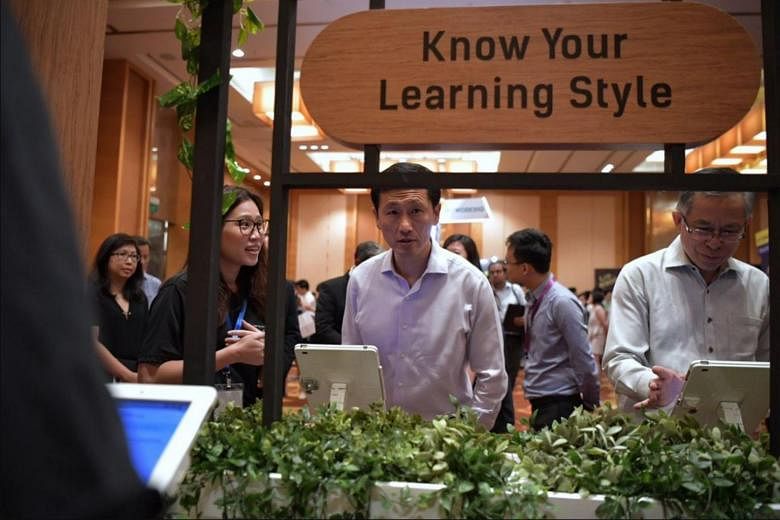SINGAPORE - Education and training is a key strategy to empower Singaporeans in this new phase of changes brought about by technology, and its importance is like that of the public housing policy in the 1960s, said Education Minister Ong Ye Kung on Saturday (June 1).
The government's near-term objective is to ensure Singaporeans have up-to-date skills, stay relevant, employed and competitive, Mr Ong said at an NTUC event held at the Marina Bay Sands.
"Our long-term mission is to help each Singaporean be part of technological change, foster a stakeholder society, unite our society around common goals, and strengthen our sense of shared destiny," he told about 400 young people who are about to enter the workforce or have just started work.
In his 15-minute speech, Mr Ong outlined the importance of key policies like the public housing policy and the labour movement in giving Singaporeans a stake in the nation.
Today, in the face of technological disruption, countries around the world like Indonesia, India and Canada have made training and developing their workforce a priority. And Singapore is doing the same with its SkillsFuture scheme.
"For Singapore, our starting premise is that technology is not going to destroy all traditional jobs," said Mr Ong. "Every wave of technological advancement created more jobs than it destroyed. The current wave will be no different."
He urged the audience to strive to do their jobs better to "inoculate" themselves from the impact of technology and not to feel pressured to switch jobs frequently just because many others do.
"We must chart our careers by developing depth of knowledge and skills. This often means staying a bit longer in a company, or an industry, to learn and master the skills of the trade," he said.
He also debunked generalisations like the need for every student to do IT courses or the view that studying the humanities is a waste of time and effort.
"Teams of diverse expertise produce good results, and that is what employers and enterprises are looking for," he noted.
But it is a fact that technology will affect how jobs are done, so digital literacy is now an essential skill that is needed across all industries, he stressed.
"Regardless of our technical expertise, we all need to be comfortable with reading data, using software and devices, and working with technology in our workplace," he added.
A total of 32,000 workers have been trained in technology under the SkillsFuture for Digital Workplace scheme in the past 18 months. The polytechnics and universities have also trained 17,000 adult learners in technology-related fields, such as data analytics, digital media and cyber security, according to Mr Ong.
He noted that NTUC has played a key role in helping workers retrained over the years. And it will continue to be a valued partner in Singapore's drive to educate and train workers in this new phase.

